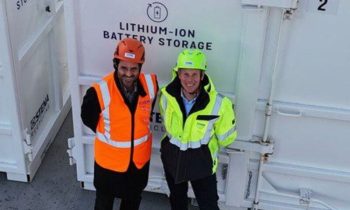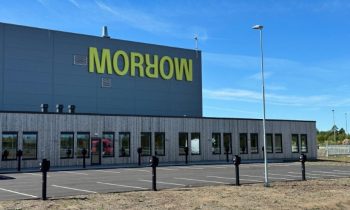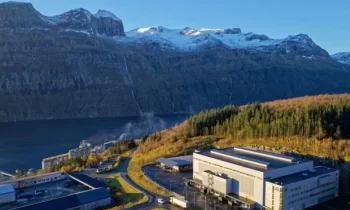Coop Norway is investing in an automated vertical farming production system through Himmelgrønt AS – a joint venture between Coop Norge Industri and Avisomo.
Despite its numerous advantages, vertical farming has faced challenges in terms of profitability due to high investments, energy-intensive production processes and the need for manual operations, the company noted.

To address this challenge, Coop Norway will test a fully automated industrial production system based on a new technology platform developed by Avisomo.
Hege Berg-Knutsen [pictured left], CEO of Coop Norge Industri said, “The use of Avisomo’s technology will enable profitable operations through great flexibility and gradual scaling. This provides better and more stable deliveries and at the same time helps to ensure Coop’s competitiveness.”
Martin Molenaar [pictured right], CEO of Avisomo added, “It’s incredibly exciting to develop our technology in collaboration with Coop in Norway, which has enormous expertise in industrial food production, not to mention sales channels for this.
“This will help us to test our technology as a basis for our international expansion. Avisomo has ambitions to become a supplier of vertical systems to the whole world, but first, we will help Coop succeed in growing great salad products to give their customers high-quality products with a lower climate footprint.”
Sustainable Food Production
Coop Norway believes that indoor cultivation will contribute to more stable and sustainable food production as frequent drought, flooding and sandstorms in southern Europe are disrupting deliveries of certain types of salads to Norway.
Berg-Knutsen explained, “Products such as arugula, spinach and other leafy salads are currently largely imported from areas where climate change makes deliveries increasingly uncertain. Indoor cultivation in a closed climate will provide access to Norwegian-grown products of higher quality all year round.[…]
“With reduced food waste, longer shelf life, and completely clean products free from pesticide residues, this will be a win-win solution for the environment and our customers. Vertically grown products will benefit our consumers, who also own us, in the form of a better and more climate-friendly selection, with a longer shelf life and a completely different flavour experience than we get from current production.”
Vertical Farming
Vertical farming is a production technique where plants, lettuce and herbs are grown indoors in a closed system, where conditions such as light, temperature and water supply can be controlled.
The farming method is area-efficient with stable product quality and delivery volume, as well as a longer shelf life due to shorter time and more gentle handling before the product reaches the consumer.
Berg-Knutsen added, “Let’s use arugula as an example. Arugula is not widely grown in Norway, and significant wastage occurs even before the product is brought in for further processing in Norway, due to long transport.
“There is then further wastage through the washing and drying process until the product is packaged. At home, arugula is a product with a limited shelf life and therefore prone to food waste. By using this cultivation method, the shelf life will be significantly increased, resulting in less waste at all stages of the value chain.”
Vertical farming also offers growers the opportunity to develop and test new products and flavours, the company added.
Established in 2018, Avisomo is a Norwegian company specialising in technology for automated vertical farming. [Photo Courtesy: Espen Solli]



